How the marriage of traditional and modern midwifery is transforming lives in rural Mexico
"They hold the future of communities in their hands."
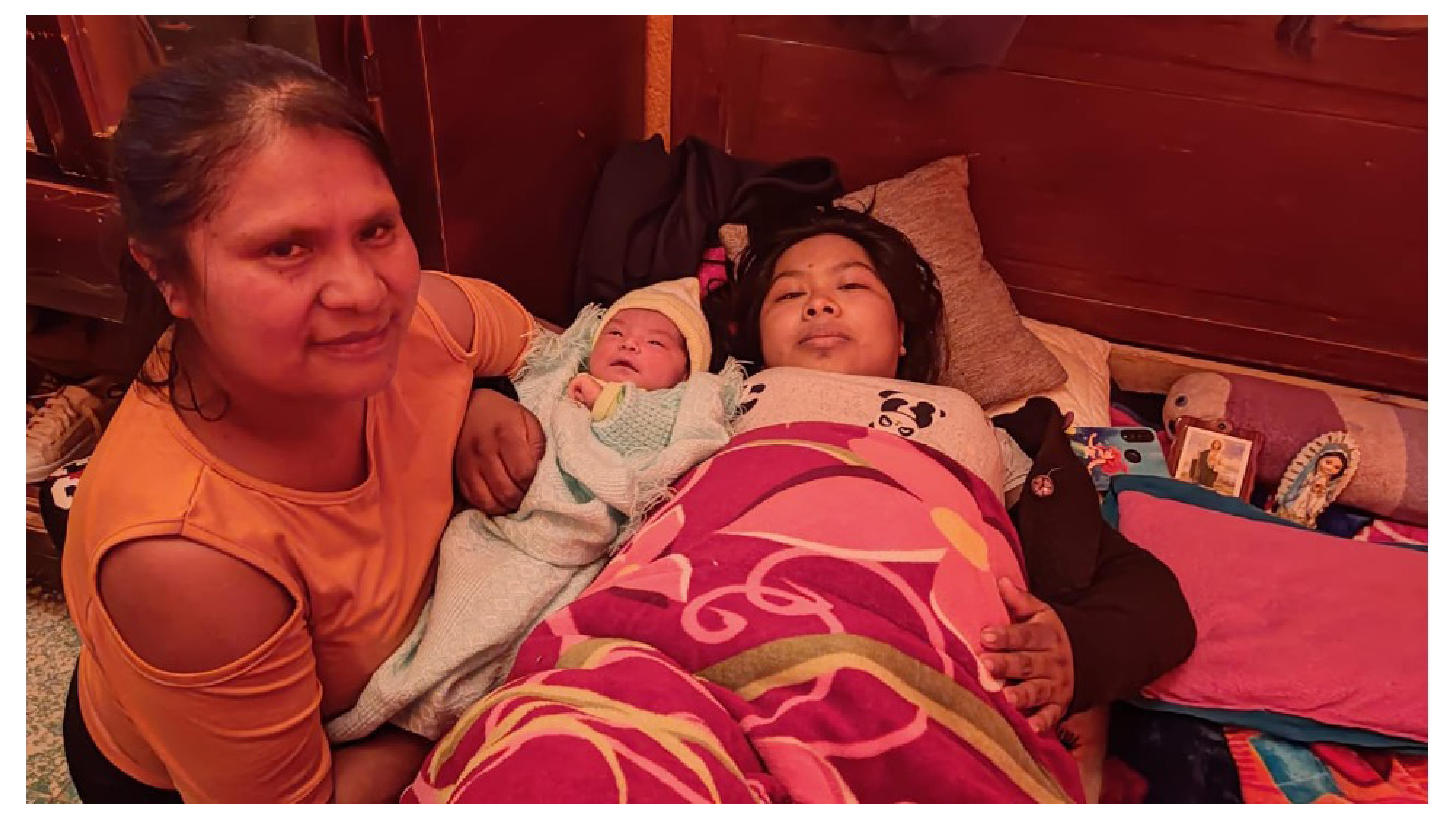
In the mountainous regions of southern Mexico, indigenous communities have for generations turned to traditional midwives to give birth to new life. These skilled herbalists, masseurs and healers draw on techniques and knowledge handed down and refined over the years.
With the advent of modern medicine in the twentieth century, these ancestral female-led practices fell by the wayside. But in recent years, indigenous midwifery advocacy groups have worked alongside NGOs to bring about a new wave of recognition for traditional birth attendants, blending their rich folk heritage with Western obstetric knowledge to keep mothers and babies safe and comfortable.
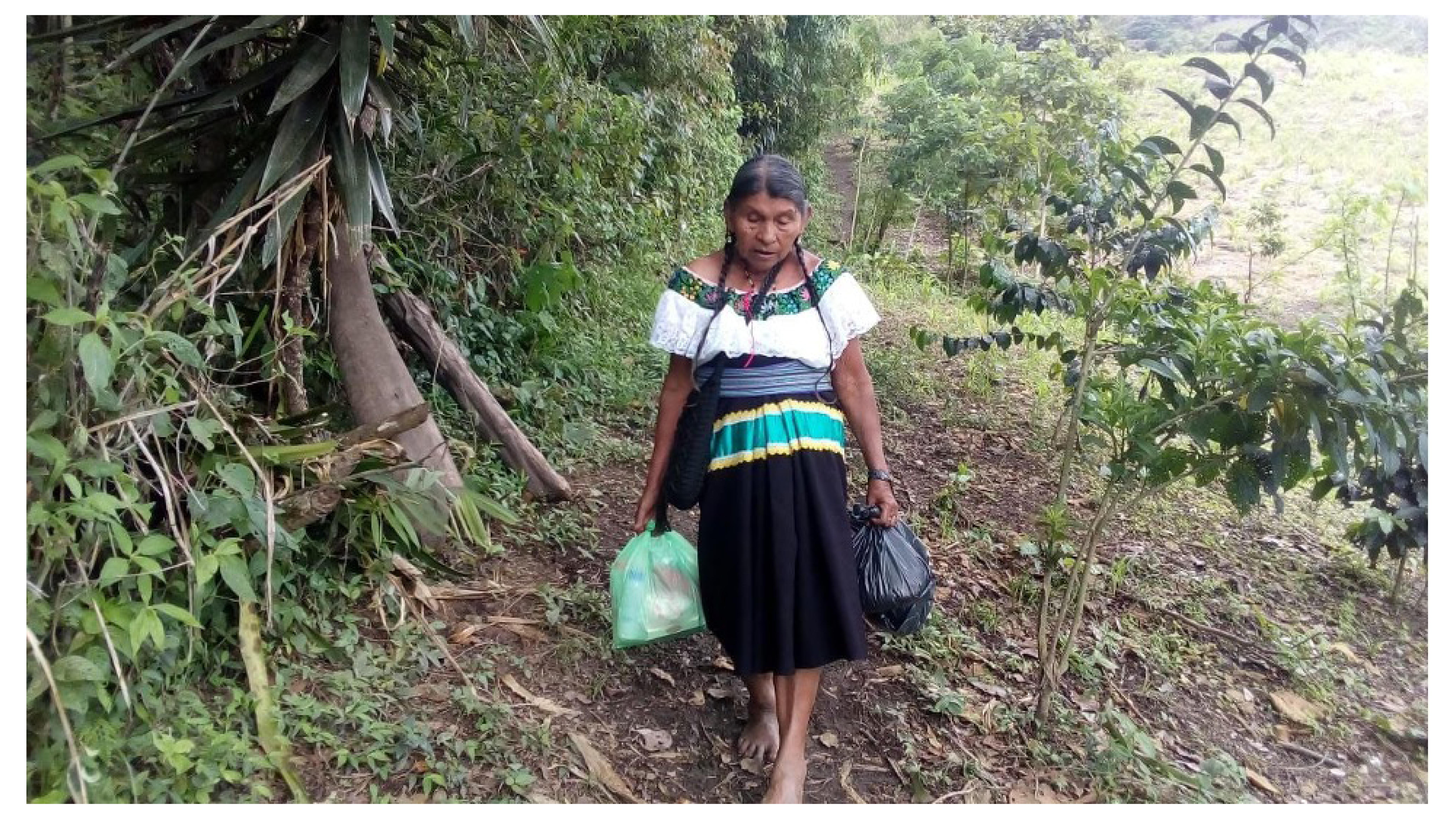
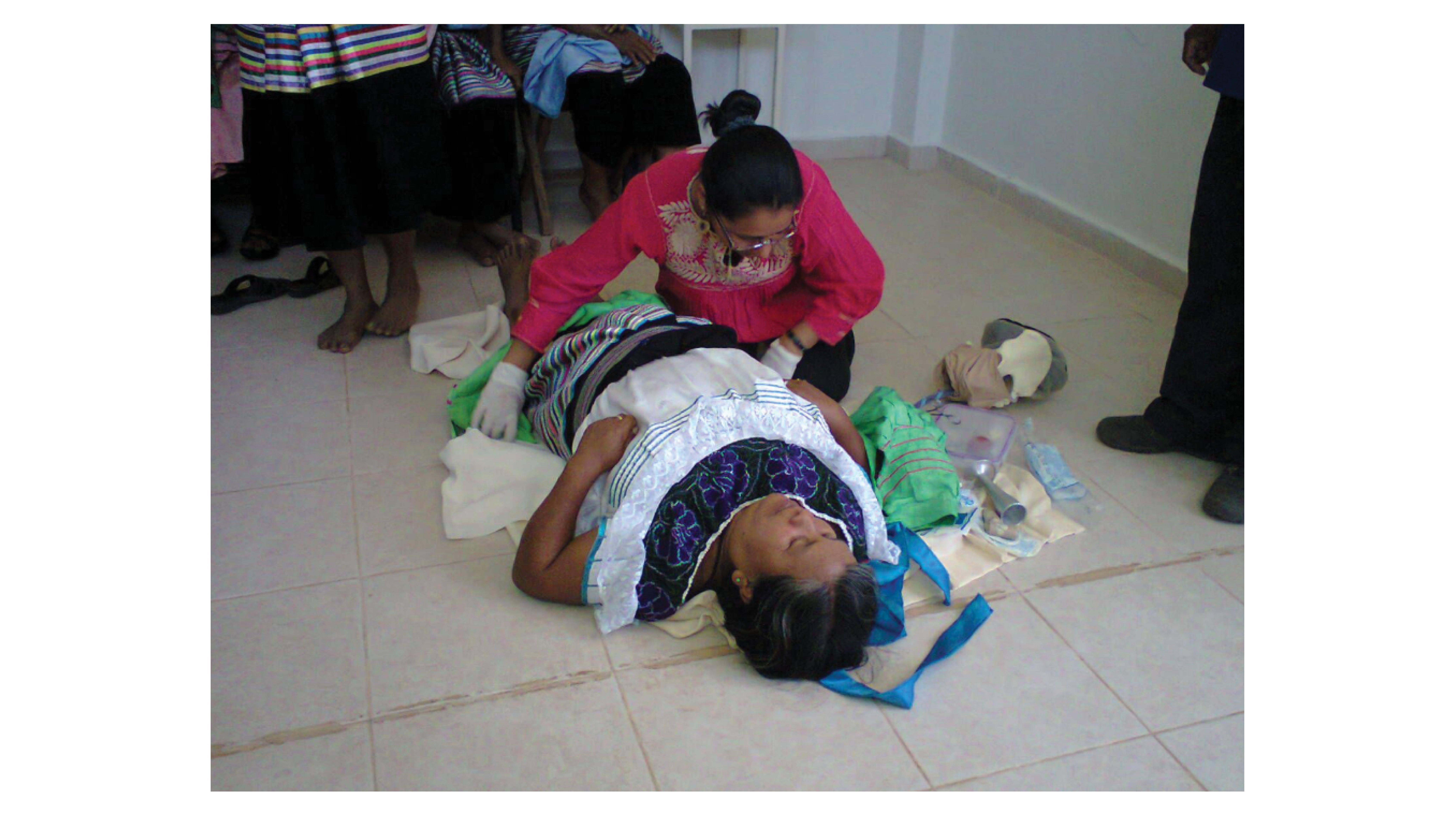
A vocation expressed in dreams
In the Mayan cultures of Mexico, dreams are of great importance. They are seen as a window on a person's future, a means of receiving guidance from the spiritual world. Sharing and interpreting dreams is a way of passing on knowledge to the community. So when 40-year-old Ofelia Pérez Ruiz had a powerful dream in her early twenties, she knew immediately that she was called to follow a new path in life. "In this dream, an elderly lady was guiding me and explaining what happens when the baby is delivered well and when it's delivered badly. That's when I felt my gift awaken," says Ms. Ruiz. She knew she was called to follow an old vocation and become a partera, or midwife.
Mr. Ruiz hails from the municipality of Chenalhó, located in the highlands of the state of Chiapas, on Mexico's southern border. Chiapas is a region of dense forests and rich natural resources, but it is also one of Mexico's poorest regions, with around 74% of its inhabitants living in poverty. Around a third of Chiapas' inhabitants are indigenous Mayans, and for many of them, life is still lived in very traditional ways. In remote areas, people live mainly off the land, with limited access to public services. To obtain medical treatment, they have to travel long distances, often on foot, to the nearest town. The region's rural communities have relied on parteras for generations, not only as midwives, but also as healers and spiritual advisors.
Ruiz is one of 5,000 traditional midwives in the state of Chiapas, according to official figures, but she believes that the informal nature of the work means that the real number could be much higher. According to her, one in three births in the state is attended by a traditional midwife.
Traditional midwifery has always been a profession that deeply values inherited wisdom. While Ruiz trained as a doctor at the start of her career, she also "received knowledge passed down from generation to generation" from her grandmother and mother, who were also midwives. Like the parteras before her, she learned techniques such as which herbs to pick from the earth and use to make herbal teas.
Like the parteras before her, she learned skills such as which herbs to pick from the earth and use to prepare herbal teas for mothers, how to give massages to advance labor or manage pain, how to position a baby and how to care for it in the moments following childbirth.
Unpaid and receiving only voluntary donations, midwives are deeply respected in their communities. But it was when Ruiz decided to study midwifery more formally at nursing school that she realized there were obstacles to achieving the same respect from health professionals. For most of the late 20th century, hospital births were strongly encouraged as part of Mexico's national health policies aimed at reducing maternal and infant mortality.
By the late 1990s, the vast majority of deliveries were taking place in hospitals, while the medical profession was making it increasingly difficult for parteras to continue their work, considering it an outdated and even dangerous form of patient care. According to Ruiz, in some states, these policies have led to the almost total disappearance of traditional midwifery practice. In Chiapas, however, it has hung on.
"Many women in Chiapas still prefer to be treated by us because of the care we give them, the trust they place in us, the fact that we speak their language and treat them according to their spiritual worldview," she explains. Sometimes, however, the care a mother or baby needs is beyond the parteras' capabilities, training or resources. If a traditional midwife is unable to access medical help for the mother, for whatever reason, or fails to recognize the need, the consequences can be devastating.
In 2012, Chiapas recorded just under 60 maternal deaths per 100,000 live births, 40% higher than the Mexican average. Due to a broad and complex set of socio-economic factors and cases of abuse or mistreatment by medical personnel, indigenous women in Chiapas are up to five times more likely to die in childbirth than other women in the state.
The Nich Ixim midwives' movement in Chiapas, of which Ruiz is the spokesperson, was created in response to these challenges. This collective of 600 midwives from over 30 municipalities strives to preserve their traditional profession and advocate for it to retain its value in contemporary healthcare. But one of the founding principles is that Nich Ixim members are committed to continually updating their skills, in order to provide the best possible care for mothers and babies. "We midwives are open to training, as long as it respects and recognizes our knowledge, experience and status as individuals responsible for the health and lives of our fellow citizens," Ruiz explains.
In 2014, Nich Ixim began working with health and development NGOs in Chiapas on a series of workshops bringing together midwives and medical workers, and exploring ways in which both could learn from each other's skills and traditions.
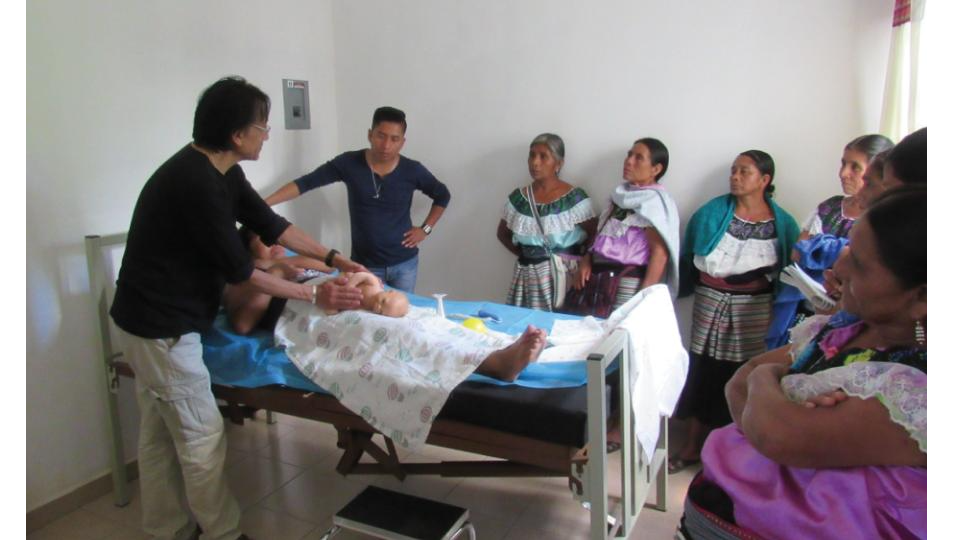
Dr Gabriel García Salyano is a physician and training coordinator at Global Pediatric Alliance (GPA), one of the NGOs involved in the project. GPA's work focuses on reducing preventable maternal and neonatal deaths and improving the lives of women and children in Latin America. Dr Salyano has worked with some 400 indigenous midwives in the workshops. He believes it is important that, after decades of rejection of parteras, medical personnel recognize a traditional midwife. He believes it is important that, after decades of rejection of parteras, medical personnel recognize that a traditional midwife "condenses in her being, in her body, in her thoughts, in her work" a wealth of ancestral wisdom.
"This knowledge is valid," he declares, asserting that Western medicine can draw inspiration from the way midwives respond to the needs and wishes of a woman in labor. Rather than letting the doctor control the situation, it is the mother who is "the protagonist of the process, she is the one in charge of the birth, she is the one who can make decisions and decide how she will be cared for".
Dr Salyano is reluctant to call himself a trainer, as "it gives me the impression that women's heads are empty and we have to fill them". Instead, he explains, the workshops aim to "create a dialogue of experiences" between midwives and medical staff, who work together as equals. The workshops create a space where midwives can talk about their experiences or difficulties without judgment, he says, while doctors and obstetric specialists can step in to suggest solutions they might try, point out where they should seek urgent help, or demonstrate useful techniques such as how and why to monitor blood pressure. When midwives talk about a technique they use that the doctor considers dangerous for the mother or child, he says, "we explain why this practice is not the most appropriate". But deep down, there's still a deep respect for midwives and their age-old craft.
"We say that midwives hold in their hands the heart of the communities, the women. And they hold in their hands the future of communities, the babies. So it's a very important job," he says.
Dr Salyano explains that it's difficult to measure the impact of the workshops in figures, but he does know that there have been no maternal deaths among the midwives they've worked with, and that !many midwives have managed to transfer women in serious situations to a hospital where they've been treated. And that saves lives. But the workshops have also helped midwives feel a new pride in their work, he says, and "they no longer feel that it's an inferior or unimportant profession".
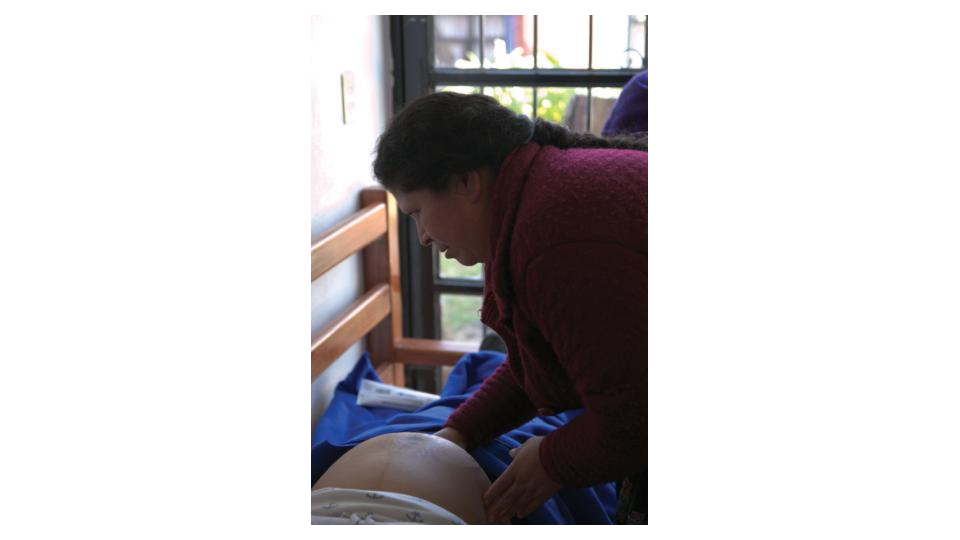
Midwives in every village
Lucía Girón Pérez, who lives in the municipality of Tenejapa, Chiapas, is one of the many midwives who have benefited from the workshops. In the tradition of midwives, she too was inspired by a dream, in which she was given a doll, to train as a partera, and first learned the trade from her mother-in-law. Pérez values her role in her community, and says the workshops have deepened the services she can offer. She feels better equipped to deal with complications such as breech births or haemorrhage, to use an ultrasound machine or to take blood pressure accurately. But she has also benefited from learning from her peers about traditional skills, such as the use of herbs before and after childbirth. All this, she says, means that the women she is delighted to help have even more confidence in her.
For women like Eustaquia Ruiz Gómez, who lives in an even more remote village in Chiapas, the knowledge that traditional midwifery practice is being preserved, but also enhanced by Western knowledge, is extremely comforting.
"I really appreciated the work of the midwives because they took good care of me," says Ms. Gómez through an interpreter, as she cradles her one-month-old daughter, safely delivered in the quiet, familiar comfort of her home by a traditional midwife.
"The traditional part is important because women are seen at home. They use more natural plants or herbs," she explains. "It's not the same as when we give birth in hospital, because the midwives can't give us hot tea or something like that. Gómez believes that "the midwives in each village are what we need most", but she also recognizes that expanding their skills is "a step forward, because they will have more experience". When they can't help a woman at home, they now know where they can take her or where they can help her further".
"We believe our work is crucial"
Dr. Salyano tells a story that illustrates how well the workshops have become integrated into the cultural traditions of midwives.
A woman attending the workshops told her that she had a recurring frightening dream in which she was witnessing childbirth with serious complications and didn't know what to do.
"But one of the times she dreamt about this, she dreamt about me and I told her not to worry," says Dr. Salyano. "I told her that at the time of delivery, she would have complications, but that I would be by her side to tell her what to do.
Later, when the woman attended a birth and a complication arose, she remembered something she'd studied in one of the workshops, and her new training kicked in. "She remembered what she needed to do, the hand movements, what she needed to work on. And the birth went well in the end." says Dr. Salyano. For him, stories like this show the value of the workshop-based training approach. Midwives, he says, "take these experiences, this knowledge and appropriate it in their own way".
"We say that knowledge complements other knowledge, that it enriches it. That's what we want to do with midwives, and it's obvious that by working with them, we also enrich ourselves.
According to Ruiz, the global pandemic has shown just how valuable midwives are to their communities. When hospitals were closed for lack of staff or to treat bird flu patients, more and more mothers turned to traditional midwives. "Some midwives doubled their workload," she explains. "Despite this, maternal mortality in Chiapas has not officially increased. She attributes this success to the work Nich Ixim has done to raise the profile and reputation of midwifery, as well as the value of traditional skills.
"This is why we midwives believe that our work is crucial and that it is necessary to work as a team with the health sector and with other professional midwives, so that women have access to more options for safe, timely and quality care."